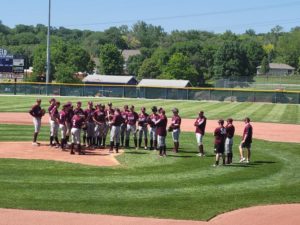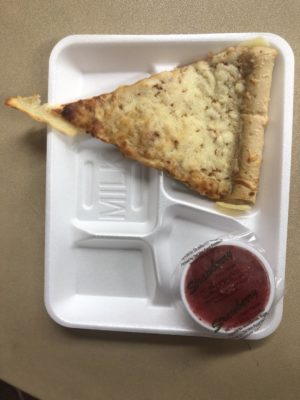Team travel policy established
December 16, 2022
Clubs and sports teams are now limited in travel opportunities as of the 2022-2023 school year. The new practice states that teams that wish to travel outside of a radius of 300 miles can only do so once every other year.
Bellevue Public Schools Superintendent Dr. Jeff Rippe said in an email that he consulted athletic directors and principals from both high schools in order to make the practice as fair as possible.
However, the practice states that organizations who have a qualifying event, such as a state competition, may attend national events every year if they qualify.
This practice will affect all activities during the school year as well as during the summer. While Rippe said that there are currently no exceptions to these rules, he said unique circumstances might be considered.
“The distance is from Bellevue and has a little flexibility,” Rippe said. “Sponsors or coaches can work with the AD from each high school to determine eligibility for competition in events.”
Rippe said that he wanted every student to have an equal opportunity to participate in activities without having to worry about the cost of a national trip every year.
“I believe that some students do not participate in clubs or activities because of the cost associated in participating,” Rippe said. “I wish the school district had the resources to send every student on a national trip, unfortunately we do not.”
Mauro said that he hopes the practice will make things easier for parents and the rest of the community who are often asked to provide financial aid for these trips.
“I think there’s been a lot of demand on groups in our community, on parents and students to fundraise for these kinds of national trips,” Mauro said. “And they are very expensive.”
Mauro said he doesn’t believe there will be many negative effects as teams can still travel.
“We still have those opportunities,” Mauro said. “They may not be as frequent as I’ve been in the past, but those opportunities still exist and I think [they’re] still gonna have great experiences.”
FBLA sponsor Pat Hinkle said that her team makes many trips throughout the year including attending a few leadership conferences outside the 300 mile radius. She said that there is a concern about how the practice will affect their numbers.
“It’s always been kind of a selling point, to say, yes, we get to go to these really cool places and we get to travel and not being able to travel may or may not affect recruitment,” Hinkle said. “I mean, I would think that’s one factor of why kids are drawn into FBLA and DECA is because of the travel and the opportunity to go places and experience new things.”
Forensics coach Becca Hier said that the team has to be more strategic about how and where they travel. Hier said an important piece of the forensics team is that they do not require students to go to nationals, even if they qualify. She said if a student wishes to compete and their parents are okay with it then the team is happy to provide that opportunity.
“I think that it’s a practice that should be revisited to truly provide equity,” Hier said. “Because if the equity piece is really what’s driving it, which I think it is, then we need to look at how do kids not miss opportunities while still providing an equitable space for kids to compete in.”
This article appeared in the Dec. 15 print issue of The Thunderbeat which included an incorrect contraction and incomplete phrase in Becca Hier’s final quote. This version has been edited to reflect the correct quote. The Thunderbeat regrets the error.






